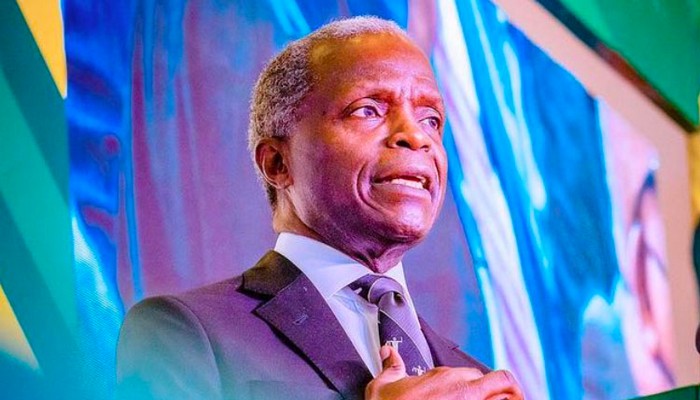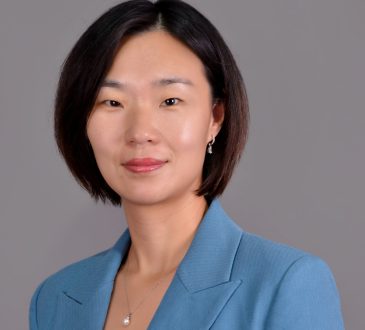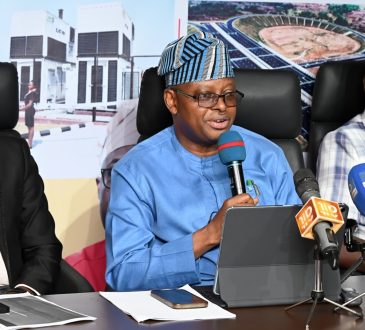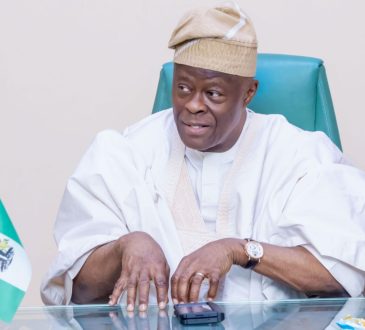Osinbajo expresses concern over Nigeria’s exchange rate regime, warns against arbitrage

Vice-president Yemi Osinbajo says Nigeria’s exchange rate regime remains a subject of worry to Nigeria’s investment climate, even as he cautions against arbitrage.
Osinbajo expressed the view on Monday at the 28th Nigerian Economic Summit Group (NESG), where he represented President Muhammadu Buhari.
The NESG organised the two-day summit, with the theme, ‘2023 and Beyond: Priorities for Shared Prosperity’, in collaboration with the Federal Ministry of Finance.
The vice-president said that real improvements had been seen in the non-oil revenues, but pointed out that focus must be on productivity and encouraging value addition.
According to him, “Productivity and value addition means creation of traceable value. It means jobs and opportunities, and it means more tax revenues.
“To increase productivity, we must free up our environment for business, make local and international trade easier by fixing the ports, and effect the national single window.
“We should also revamp our customs processes and tariff codes to reduce delays and arbitrariness, and remove needless restrictions on imports to enable value-added processes.’’
The vice-president stressed that measures must be put in place to grow confidence and increase inflows of foreign exchange, while urgent steps should be taken to control Nigeria’s rising inflation.
He said that addressing the exchange rate concern would entail finding a mechanism for increasing supply and moderating demand, which he urged should be transparent to grow business confidence.
He said, “I am sure most can recall that several efforts had been made in the past, like the Interbank Foreign Exchange Market, Retail Dutch Auction System and Wholesale Dutch Auction System.
“All of these discovery mechanisms were transparent, evidence for all to see, and they worked.
“So, I think that what we should be looking for is not necessarily any perfect rules, but we must certainly prevent the type of arbitrage that we have.”
He warned against arbitrage in the foreign exchange market, saying it does not grow investors’ confidence in the economy.
The World Bank had also often expressed concern on the exchange rate, with an advice that Nigeria should make a decisive move towards exchange rate unification and stabilisation.
The president, World Bank Group, David Malpass, had given the advice during a meeting with Osinbajo on Nigeria’s energy transition plan.
Nigeria operates a dual exchange rate system, which some economic analysts say is creating a volatile currency market.
While the investors and exporters (I&E) window is adopted at the official foreign exchange rate market, there is a parallel section of the market, also called the black market.
A parallel market (street market) is characterised by non-compliant behaviour, with its own set of rules.
Even though the Central Bank of Nigeria (CBN) has maintained that the parallel market was not the true reflection of the naira, the sector has grown and continues to serve many Nigerians.






